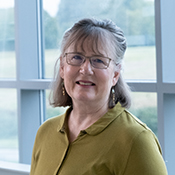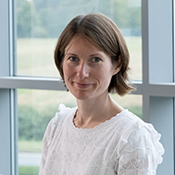A parish church is for everyone in the community that it serves, for both current and future generations.
Many different groups and people have an interest in what happens there. Church of England churches and churchyards benefit from exemption from the secular system of listed building control via the Ecclesiastical Exemption Order 2010. However, we only have exemption as long as we maintain our own, equivalent heritage protection system.
For parish churches this is the faculty system, as set out by the Faculty Jurisdiction Rules. The permissions process is designed to enable parishes to make changes to their church buildings to enable mission and outreach, whilst conserving the architectural and historical significance of these special places. A full, and surprisingly consumable, guide to every aspect of the faculty jurisdiction can be found in Changing Churches by Charles Mynors.
Looking for something in particular?
Jump to: What permission do I need? | Heating | Trees | Monuments | Churchyards | Roofs
Meet the people involved in the permissions process
There are a number of people who are involved along various stages of the faculty process...
Your first port of call will be a member of the Church Buildings team, who will be able to answer any initial enquiries, providing advice on all matters relating to the church and churchyard, their contents and their care, as well as the permission process. You can contact us by emailing churchbuildings@oxford.anglican.org or calling 01865 208270.
From your first contact with us, you will be assigned a member of the team to be your case officer, and they will support you from conception to completion of your project, reviewing documents, guiding you through the stages of consulting the DAC Committee and any other consultees, referring the scheme to the DAC and its members and advisors on your behalf, and possibly visiting the church to discuss the proposals.
 Evie Foley
Evie Foley
Assistant Church Buildings Officer
Evie is your first point of contact for any enquiries you may have with regards to the status of your applications. She joined the team in 2025 and is enjoying helping parishes with their applications.
 Liz Kitch
Liz Kitch
Head of Church Buildings
Liz has a degree in Architectural Technology and a post-graduate degree in Historic Building Conservation. She is a member of the Church Buildings Council and full member of the Institute of Historic Building Conservation. Having worked in the diocese since 2016, Liz is passionate about finding the best ways to support churches through the permissions process and ensure the long-term sustainability of our church buildings.
 Sophie Hammond
Sophie Hammond
Church Buildings Officer
Sophie studied History of Art with and holds a Master’s in Building Conservation from Oxford Brookes. She has been working for the DAC since 2010 and is passionate about helping parishes find the sensitive and high-quality design solutions for meeting their needs.
 Jennie Schillig
Jennie Schillig
Senior Church Buildings Officer
Jennie studied geology and geophysics and has an MSc in Building Conservation. Having worked for 20 years in an ecclesiastical architecture practice before joining the team in November 2018, Jennie brings her extensive technical conservation expertise to the team.
 Hannah Robertson
Hannah Robertson
Church Buildings Officer
Hannah studied interior design and has an interest in churchyards. She brings technical architectural expertise in buildings to the team.
 Emily Jackson
Emily Jackson
Church Buildings Officer
Emily is a Chartered Building Surveyor who has previously worked for a large heritage charity and holds a Masters degree from the University of York in Historic Building Conservation. Emily brings expertise in the maintenance of historic buildings to the team.
 Debbie Perry
Debbie Perry
Casework Coordinator
 Maggie Metaliaj
Maggie Metaliaj
Pastoral Secretary
The pastoral secretary, works closely with the archdeacons, area teams, deaneries and parishes involved, oversees the formal aspects involved with pastoral reorganisation for the diocese.
 Claire Green
Claire Green
Pastoral and Closed Churches Officer
 Oliver Mitchell
Oliver Mitchell
Church Buildings Officer
Oliver studied medieval art and architecture and holds a Masters degree from the Courtauld Institute of Art, University of London. He undertook an apprenticeship with a local authority and joined the team in 2024.
The DAC aims to pass on knowledge and experience gained over many years by others in similar situations. You can find out about the members of the DAC and the governance of the committee on the DAC webpage.
Helen Lambourne
Diocesan Registry Clerk
Helen is your first port of call at the Diocesan Registry and will be able to give initial advice regarding the later stages of your faculty application once the DAC has provided its advice.
01865 297 208 | Email
Darren Oliver
Diocesan Registrar
The Diocesan Registrar is appointed by the bishop and plays a key role in the faculty system, having been given key roles and duties under the Faculty Jurisdiction Rules 2015.
Darren is an ecclesiastical, property and charity solicitor with particular expertise in matters relating to consecrated churchyards, churches and the faculty jurisdiction. As Registrar of the Diocese of Oxford and Deputy Registrar of the Diocese of Chichester, he specialises in giving advice to Church of England bodies on governance and constitutional matters and is able offer informal advice to parties in faculty proceedings and prospective applicants. He is a partner at Winckworth Sherwood, the firm who act as the Diocesan Registry.
01865 297 210 | Email
The Chancellor has various powers and duties under the Faculty Jurisdiction Rules 2015 and deals with all faculty matters except those delegated to the Archdeacon (List B). Most of the Chancellor’s work on faculty matters is dealt with on paper, hearings are only held very rarely.
His Honour Judge David Hodge QC (1974, Law) is the Chancellor for the Diocese of Oxford.
What permission do I need and how do I apply
- Close up and context photos
- Plan of area
- Quote
- Description/Specification of work
- Any reports from specialists
- Product information
- Annotated photos of any wiring/cable routes
The more information you can provide before making an application or enquiry, the quicker we will be able to provide advice. Important information and helpful tips on applying for List B permission are available here.
If the work proposed cannot be found on either List A or List B it is likely to require faculty permission.
- Close up and context photos
- Plan of area
- Quote
- Description/Specification of work
- Any reports from specialists
- Product information
- Annotated photos of any wiring/cable routes
- Supportive PCC minute
Important information and helpful tips on applying for faculty permission are available here.
https://facultyonline.churchofengland.org/
This is used to log ‘List A’ work and to apply for ‘List B’ and ‘Faculty’ permissions. You will need to register to use this service. Frequently asked questions, together with user manuals for this system can be found here - https://facultyonline.churchofengland.org/faqs Within each application you will find a helpful orange section at the top which ‘walks you through’ each individual application. If you are having difficulty with this system please email us.
The Institute of Conservation Register - Icon Find a Conservator
The Building Conservation Directory - The Building Conservation Directory
The National Inspection Council for Electrical Installation Contracting - NICEIC Contractor Search
The National Association of Professional Inspectors and Testers - NAPIT Member Search
Health and Safety legislation (Electricity at Work Regulations 1989) says that every electrical installation must be properly maintained. Churches are important places and special care needs to be taken when carrying out any electrical works. Electrical installations must not only be safe and compliant with current regulations but they should also respect the historic character and fabric of the church.
Church insurers may recommend that electrical wiring should be inspected and tested to ensure it is safe every five years so it makes sense to commission an Electrical Installation Condition Report at the same time as the quinquennial inspection.
- When carrying out any electrical works connected to the mains supply at your church It is important to employ contractors who are members of one of the following trade associations:
An NICEIC contractor (National Inspection Council for Electrical Installation Contracting) - The electrician must be registered for commercial and industrial work, and not just domestic or Part P work.
A Full member of the ECA (Electrical Contractors Association)
A Full Member of NAPIT (The National Association of Professional Inspectors and Testers) without a ‘Limited Scope membership’
You should always check that contractors hold valid insurance documents – both Public Liability cover (min £5,000,000) and Professional Indemnity insurance if their work includes an element of design.
- Compact Fluorescent Lamps (CFLs) should never be used with dimmer switches. Not only will they not perform well (although they may appear fine at first) but because this presents a serious fire risk.
- Your church architect should be involved in the planning of all wiring routes, including surface mounted cables and conduits, and the proposed locations of new electrical equipment such as light fittings, power outlets or PA speakers. They should advise on the location and type of fixings used.
- The use of uPVC trunking is not permitted under any circumstances. Neatly clipped wiring with fixings into mortar joints is far less obtrusive and can be painted to blend in with the background.
- Fixing into stone should only be made into the mortar joints between stones rather than the stones themselves, and fixings onto decorative carving and mouldings should be avoided. Use of pattress plates or battens to enable this should be considered if direct fixing into mortar joints is difficult.
- Fixing into historic plaster should be avoided, but if it is necessary, then care must be taken to ensure that the fixings do not penetrate wall paintings. In such cases, it may be necessary to seek specialist advice to identify whether wall paintings are present.
- Cables should be routed in such a way that minimises their visual impact on the interior of the church. Internal corners, wall plates, string courses and other architectural features should be used to enable cable runs to be disguised or hidden.
- PA speakers, light fittings or any other equipment should not be fixed to sensitive fabric nor should they obscure important detail or detract from the character of the church.
- The careful choice of finish for wiring and equipment can help reduce its visual impact. Where possible wiring should be painted out to match the background colour. Where the wiring is vulnerable to accidental damage then the use of MICC or MICV (sheathed), or FP200 Gold cable should be considered.
- Consideration should be given to access for ongoing maintenance of equipment and fire safety. For example, by not locating heat generating equipment (halogen spotlights etc) near timber or flammable fabric or locating the electronic drivers of LED light fittings remotely rather than having them as an integral unit. The driver will fail long before the LED light fitting and to have it easily accessible will lower the cost of ongoing maintenance.
- When re-lamping or reviewing existing lighting installations LED lamps and fittings should be employed. If dimming is required ensure that the appropriate drivers and lamps are installed.
Further advice is contained in the Church Buildings Council guidance publication.
In this section...
Detailed breakdowns of the permissions processes are below, organised by category.